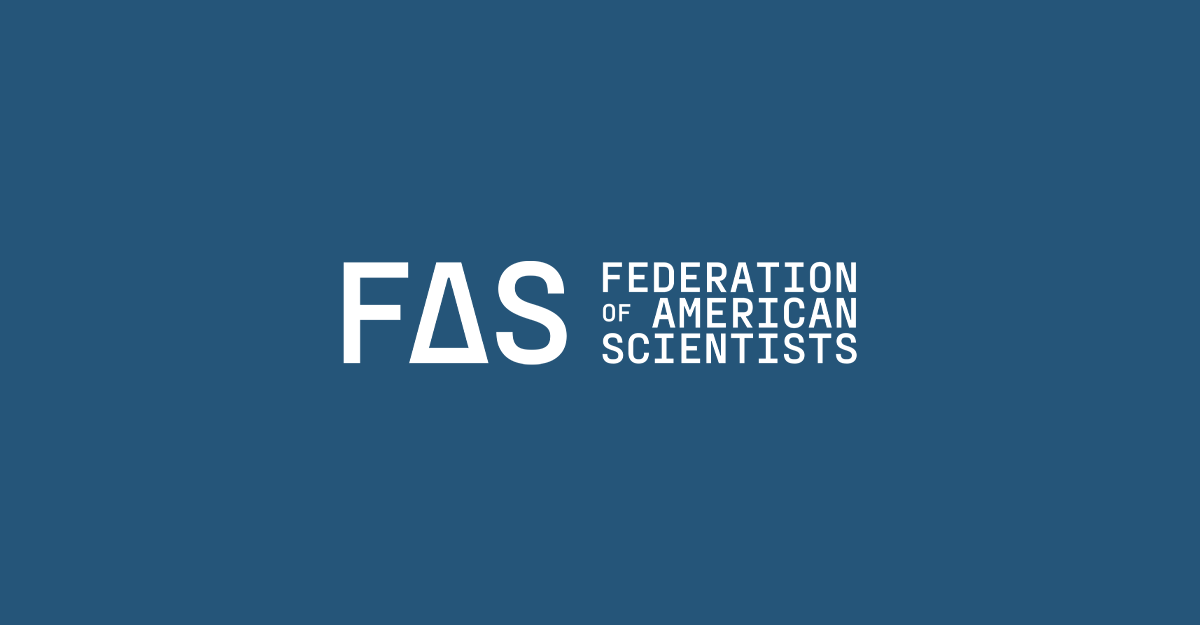
Nuclear Experts from the Federation of American Scientists Contribute to SIPRI Yearbook 2024
FAS’s Nuclear Information Project estimates that the combined global inventory of nuclear warheads is approximately 12,120
Washington, DC – June 17, 2024 – The Federation of American Scientists’ nuclear weapons researchers Hans Kristensen and Matt Korda with the Nuclear Information Project write in the new SIPRI Yearbook, released today, that the world’s nuclear arsenals are on the rise, and massive modernization programs are underway.
“China is expanding its nuclear arsenal faster than any other country,” said Hans M. Kristensen, Associate Senior Fellow with SIPRI’s Weapons of Mass Destruction Programme and Director of the Nuclear Information Project at the Federation of American Scientists (FAS). “But in nearly all of the nuclear-armed states, there are either plans or a significant push to increase nuclear forces.”
“We are entering a new period in the post-Cold War era as nuclear stockpiles increase and nuclear transparency decreases. It is, therefore, extremely important for independent researchers to inject factual data into the debate,” says Matt Korda, Associate Researcher in the SIPRI Weapons of Mass Destruction Programme and Senior Research Fellow at FAS.
Kristensen and Korda are leading researchers on the global stockpile of nuclear weapons. Along with their colleagues Eliana Johns and Mackenzie Knight, the Nuclear Information Project team at FAS produces the Nuclear Notebook, a bi-monthly report published in the Bulletin of Atomic Scientists detailing current estimates of nuclear weapon stockpiles. This work plays an increasingly important role as government transparency about nuclear forces continues to decline around the globe. Ongoing reports, archives, and other materials are available at fas.org.
The first edition of the SIPRI Yearbook was released in 1969, with the aim of producing “a factual and balanced account of a controversial subject-the arms race and attempts to stop it.” Interested parties may download excerpts from the latest Yearbook in several languages here, or purchase the report in full.
Read a summary of SIPRI findings by FAS Nuclear Information Project researcher Eliana Johns here.
###
ABOUT FAS
The Federation of American Scientists (FAS) works to advance progress on a broad suite of contemporary issues where science, technology, and innovation policy can deliver dramatic progress, and seeks to ensure that scientific and technical expertise have a seat at the policymaking table. Established in 1945 by scientists in response to the atomic bomb, FAS continues to work on behalf of a safer, more equitable, and more peaceful world. More information at fas.org.
While it is reasonable for governments to keep the most sensitive aspects of nuclear policies secret, the rights of their citizens to have access to general knowledge about these issues is equally valid so they may know about the consequences to themselves and their country.
Nearly one year after the Pentagon certified the Sentinel intercontinental ballistic missile program to continue after it incurred critical cost and schedule overruns, the new nuclear missile could once again be in trouble.
“The era of reductions in the number of nuclear weapons in the world, which had lasted since the end of the cold war, is coming to an end”
Without information, without factual information, you can’t act. You can’t relate to the world you live in. And so it’s super important for us to be able to monitor what’s happening around the world, analyze the material, and translate it into something that different audiences can understand.